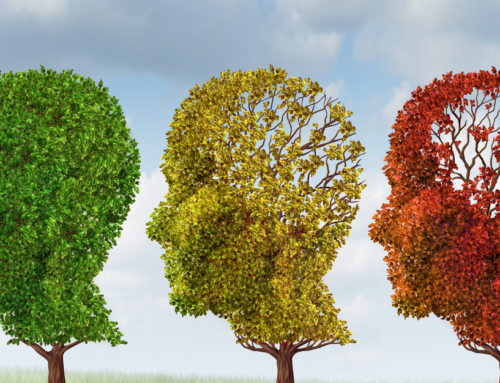Studies have shown that women with Hashimoto’s are at a higher risk of giving birth to a child who develops ADHD
When we think of attention deficit hyperactivity disorder (ADHD) we think of the boys — they’ve received the lion’s share of diagnoses and attention. But turns out we’re focusing mainly on characteristically boys’ symptoms, leaving a lot of girls in the dust with their symptoms and very bad outcomes in adulthood.
This is important for women with Hashimoto’s hypothyroidism to be aware of in their daughters.
While boys act out and are hyperactive, ADHD in girls expresses itself more as disorganization and inattentiveness.
Symptoms include a tendency toward daydreaming, trouble following instructions, and making careless mistakes.
- These symptoms can lead to feelings of shame for girls who feel the pressure to perform. They see these symptoms as personal flaws instead of a neurological condition.
- Sadly, this continual sense of failure can lead to anxiety, depression, low self-esteem, eating disorders, and a four to five times greater risk of self-harm and suicide.
- These girls are more likely to have fewer friendships and get into unhealthy and abusive relationships that mirror their inner lack of self-worth.
Girls tend to develop this condition later than boys, and it can get worse as they get older. Many don’t get diagnosed until adulthood and spend their lives trying to manage it on their own and feeling shame about it. While moms with Hashimoto’s should be on the lookout for autoimmune diseases in their children, in fact children with ADHD are found to have higher rates of autoimmune diseases such as Hashimoto’s hypothyroidism.
Missing the cues of ADHD in girls whose mothers have Hashimoto’s hypothyroidism
The diagnosis of ADHD in girls has increased by 55 percent in recent years, compared to 40 percent for boys. Despite this increase, many girls still go undiagnosed (while there is over overdiagnosis of boys).
This is because the symptoms of feeling unfocused and disorganized lead to depression and anxiety. As a result, girls miss out on services that may help their symptoms in childhood and instead are prescribed anti-anxiety and antidepressant medications, which can exacerbate symptoms. Many doctors also believe girls can’t get ADHD. Many women with Hashimoto’s are familiar with the routine of being prescribed antidepressants for an undiagnosed autoimmune thyroid disease.
ADHD in adult women
As women take on careers and raise children, masking their symptoms of ADHD can become more difficult. Studies found that adult women with high IQs and ADHD suffer from constant feelings of being frantic and overwhelmed trying to manage day-to-day basics. Adult women have become the fastest-growing users of Attention Deficit and Hyperactivity Disorder medications.
If you’re a mom with Hashimoto’s, it’s important to consider autoimmune disease and neurological issues such as ADHD since you can help your daughter understand her symptoms.
Hashimoto’s, ADHD, and functional medicine
With autoimmune diseases such as Hashimoto’s and neurological disorders such as Attention Deficit and Hyperactivity Disorder, we always seek to support the brain and the underlying causes as much as possible. This can mean looking at foods that are inflammatory to the brain and the immune system (gluten is a primary one) and the role of gut health, another known link to brain health and immune function. With Hashimoto’s, immune function must be addressed so symptoms can be managed.
For more advice on ADHD and Hashimoto’s hypothyroidism, please get in touch with our team. There are amazing natural supplements to help ease the symptoms and improve overall quality of life!







